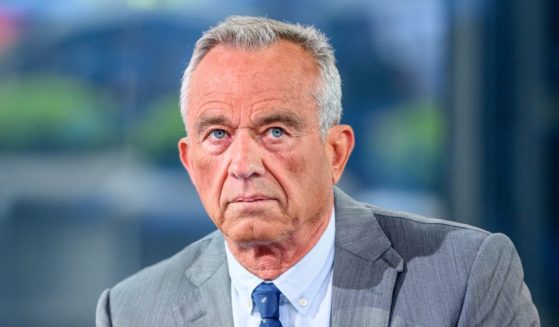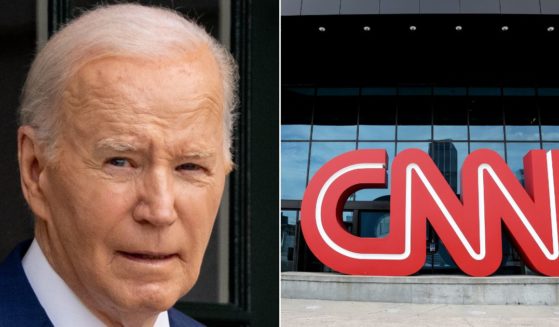Nigerian Boy Kidnapped by Islamic Terrorists Opens Up About Daring Escape
It was late Friday night when Usama Aminu heard gunshots, at first thinking they had come from the nearby town.
As soon as he and the other students at the Government Science Secondary School in Kankara realized there was a raid on the school, they scrambled out of their dormitory and scaled the school’s fence in the pandemonium.
The 17-year-old told The Associated Press about the attack on the school in Nigeria’s northern Katsina state in which men armed with AK-47 rifles abducted more than 300 students from the boys’ school.
The attack, claimed by Boko Haram, Nigeria’s jihadist rebels, has prompted an outcry in the West African nation against the government for not doing enough to stop attacks on schools in the north.
But Aminu was still not safe.
“After we scaled the fence, we were hearing voices that we should come back,” he said.
The boys returned “thinking they were police officers. Unknown to us it was the bandits. They then gathered us at a spot. That was when we realized they were bandits, wearing military uniform,” he said.
“We walked through the night in the bush, and at sunrise they found a place and asked us to sit down,” Aminu said.
Aminu, who suffers from sickle cell anemia, recently transferred to the Government Science Secondary School to be closer to his family and medical care for his condition.
In response to the abductions, Nigeria launched a rescue operation in which the police, air force and army tracked the kidnappers to their hideout.
“When the bandits heard the sound of the helicopter hovering above they asked us to lay down under the large trees with our face to the ground,” Aminu said.
During their hike, Aminu said they met young boys in their teens, armed with guns. He said some were younger than he is.
Exhausted from the trek, Aminu held onto the shoulders of two friends “as the bandits continued to flog people from the back so that they can move faster.”
After dark, he managed to slip away unnoticed into the night and hide in a mosque. A local resident eventually found him coughing and offered him a change of clothes so that he could leave his school uniform behind, he said.
He returned home at around 11 p.m. Sunday.
His father, Aminu Ma’le, told the AP he was relieved but still worried for the others. “I cannot celebrate alone because of the other boys still missing,” he said.
Katsina governor Aminu Bello Masari said that 17 boys have been rescued since the attack, including 15 by the military, another by police and one boy found roaming in the forest who was brought in by residents.
Aminu was among those boys.
The school has more than 800 students, and hundreds of others also managed to escape. But more than 300 remain held by insurgents, who are known to use child soldiers.
The government and the attackers are negotiating for the freedom of the boys, according to Garba Shehu, a spokesman for Nigerian President Muhammadu Buhari. Parents of the missing students gather at the school daily to anxiously await news of their sons.
To prevent any other school abductions, Katsina shut down all its boarding schools. The nearby states of Zamfara, Jigiwa and Kano have also closed schools as a precautionary measure.
Boko Haram kidnapped the schoolboys because it believes Western education is un-Islamic, the rebels’ leader Abubakar Shekau said in a video claiming responsibility for the attack.
It is likely they worked with local bandits who have staged increasingly deadly attacks in northwest Nigeria this year.
Residents of Katsina plan to protest on Thursday, saying the government isn’t doing enough to protect its youth.
Armed bandits have killed more than 1,100 since the beginning of the year in Nigeria’s northwest, according to Amnesty International.
For more than 10 years, Boko Haram has engaged in a bloody campaign to introduce strict Islamic rule in Nigeria’s north. Thousands have been killed and more than a million people have been displaced by the violence.
Boko Haram has been mainly active in northeast Nigeria, but with the abductions from the school in Katsina, there is worry the violence is expanding to the northwest.
The abductions of the schoolboys is a frightening reminder of Boko Haram’s previous attacks on schools. In February 2014, 59 boys were killed when the jihadists attacked the Federal Government College Buni Yadi in Yobe State.
In April 2014, Boko Haram kidnapped more than 270 schoolgirls from a government boarding school in Chibok in northeastern Borno state. About 100 of those girls are still missing.
The Western Journal has reviewed this Associated Press story and may have altered it prior to publication to ensure that it meets our editorial standards.
Truth and Accuracy
We are committed to truth and accuracy in all of our journalism. Read our editorial standards.






![A cousin said "God, Family, friends and fishing were what matter[ed] most" to Benny Bowers.](https://www.westernjournal.com/wp-content/uploads/2024/05/Hero-dad-drowns-559x327.jpg)





